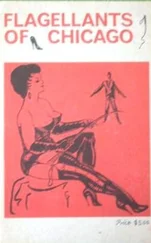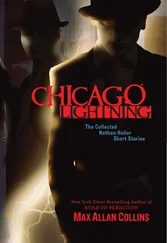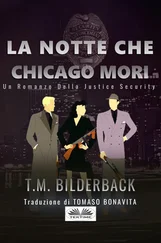“Why?”
“I think you know why,” said Roberts and then turned away and left. When Carol entered Graham’s office sobbing and told him what had happened, the histology department witnessed a unique incident. Graham pulled Carol by the hand and rushed through the corridor, dragging her as if she were a child. He stormed Roberts’s office and shouted in a thunderous voice, “Listen, you’ve insulted my girlfriend. Either you apologize to her now or I will break your head. Understand?”
Roberts raised his head slowly. He was busy preparing a lecture he was to deliver in a short while and realized (being intelligent, and from his long experience with Graham, whom he thought capable of any behavior, being an anarchist communist with almost no morals) that Graham would carry out his threat. So he looked calmly at Carol (whose face changed expression from crying to fear of the consequences of a fight) then placed his hands together in front of his chest in the Indian way and bowed his big head, laughing to make it all sound like a joke, “I apologize for what I said to you, madam; please forgive me.”
At that point Graham looked like an angry child who was not able to have his revenge, so he sighed and left the room with Carol at his heels.
Racist harassments, however, despite their viciousness, did not affect the lovers. After every racist incident they experienced, they’d go home and take delight in making love passionately. They would rush at the beginning then take their time and enjoy their pleasure leisurely as they used to do in their early days together, as if clinging to each other against that unfair ugly world that persisted in trying to separate them, or as if the person insulting them were watching them making love so they wanted deep down to defy him and prove to him how wrong he was.
One day after mad lovemaking that exhausted them, they lay naked, panting. She lay on his chest and began, as usual, listening to his heartbeat and playing with the gray hair on his chest with her fingers and kissing it. He said to her in a dreamy voice that reverberated in the stillness of the room, “If I could, I’d marry you right away.”
“Why can’t you?”
“Civil marriage procedures remind me of the articles of incorporating a commercial company. As for standing before a fat, dyspeptic priest to repeat after him prayers that would make us a couple, that’s something I couldn’t stand.”
“Why?”
“If God exists, do you think he needs official papers and seals?”
“These are church rituals.”
“The church is one of the biggest lies in history and it has played, in most eras, the role of the commercial, colonialist establishment more than anything else.”
“John!”
“I can prove to you, if you wish, with historical evidence that Jesus Christ never existed to begin with. Man has invented religions to get over his fear of the unknown.”
She placed her hand on his mouth and said, “Please, I am a believing Christian. Can you respect my feelings a little?”
When she got angry, when she pursed her lips and her face looked like that of a child about to cry, when she stared at him with her beautiful eyes as if he had disappointed her, she became irresistible, and he would take her in his arms and shower her with kisses. That usually led to a new round of lovemaking.
Their love was wonderful, but troubles loomed when Carol lost her job. A new white manager was appointed at the mall where she worked and he fired her and another black colleague for no obvious reason (unless it was their color?). For ten months Carol fought obstinately to find a new job but she couldn’t. The two lovers found themselves in unexpected financial straits. Graham had no savings at all. He spent money right away, as if he were getting rid of a burden or shame. Like most people advanced in years, he spent sleepless nights worrying about suffering a debilitating illness, so he chose a very expensive insurance coverage whose monthly premium ate up a considerable portion of his university salary. At the same time, Mark’s tuition and his basic expenses were high while Carol’s unemployment compensation was negligible. Faced with that, Graham reined in his expenses to overcome the crisis: he stopped taking Carol out to eat and he also did not buy the clothes that he needed for winter. For the first time in many years he stopped buying the expensive Dutch tobacco that he loved very much and replaced it with a cheap local substitute that had an overpowering smell as if it were burning wood. He did all of that gladly, without grumbling or unease. To the contrary, he was more cheerfully playful with Carol and said to her more than once to console her, “I don’t have a problem. So long as we can have the young one’s tuition and our food, nothing worries me. I’ve accustomed myself to live on very little. The most beautiful days in my life were those I spent on the street, homeless.”
Carol, however, did not accept the crisis so simply. She felt guilty because she had brought him this hardship. She told herself that she had been unfair to him. His salary had been enough for him, and now, together with her son, they had become a burden on him. Why should he suffer when Mark’s father didn’t want to support his son? She felt very bitter that she had lost her job, not because she was negligent or inefficient, but just because she was black. Graham was surprised one day when he found her hanging a large wooden sign at the entrance to the living room, with the inscription:
You Are White You Are Right
You Are Black Stay Back
Graham was disturbed and asked her why she had written the sign. She smiled sadly and said, “Because it’s the truth, John. I put it up there so I would never forget.”
She became irritable and moody. She would be silent for a long time then suddenly cry, for no reason. Sometimes she was aggressive and combative and fought with John for the most trivial reasons. He met her rage with the understanding and tolerance of someone in love. At the peak of her anger when she yelled at him and waved her hands hysterically, he would resort to silence and smile affectionately. Then he would get close to her, embrace her, and whisper, “I don’t want to talk about details. I love you and I apologize for all that angers you, even if I am not responsible for it.”
ON SUNDAYS HE USUALLY SLEPT in, but for one reason or another that morning he got up early and didn’t find her next to him. He looked for her throughout the house, and when he didn’t find her he was worried that she had gone out without telling him. Where had she gone and why hadn’t she left him a message? She had left early knowing that, as usual, he wouldn’t get up before noon. What was she hiding? Did she go to Mark’s father to ask him to support his child? She had told him once that she wanted to do so, but he had objected strenuously. He said she had to maintain her dignity. But he knew that he objected out of jealousy. He was afraid that her love for her old mate might be rekindled. He was a younger man and the two of them had a long history. Had she gone to him? He would never forgive her if she had.
Mark had got up, so Graham prepared breakfast for him, made him a large cup of hot chocolate, and turned on the cartoon channel. Then he went back to his room, closed the door, and lit his pipe, but he couldn’t help himself. So he went back and asked Mark, “Did you see your mom going out?”
“I was asleep.”
“Do you know where she went?”
“Don’t worry about Mom, John. She’s a strong woman.”
John Graham laughed at his precociousness and hugged Mark and kissed him and sat next to him to play with him. A little while later he heard the door open, squeak, and close slowly. Soon Carol appeared at the door of the room. She was frowning and looked engrossed in distant thoughts despite her elegant appearance, which confirmed his suspicions. Graham led her gently but firmly to their room. He closed the door, doing his best to control his anger. “Where’ve you been?”
Читать дальше
Конец ознакомительного отрывка
Купить книгу












